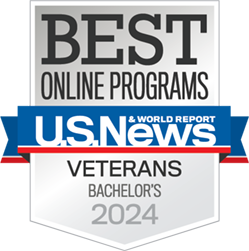
Choose an Accredited Graduate Certificate for Whole-Person Care
100% Online
12-18 Months*
*The total number of credits and duration of the program depend on the number of transferred credits
Program Benefits
- A multidisciplinary approach to patient-centered care
- Fast track knowledge to apply in your current role
- Military-friendly, Yellow Ribbon school
- Enter with a 3.0 GPA
*Indicates required field
- Read: Privacy Disclaimer Acknowledgment
-
By providing your phone number on this request information form, you have authorized the George Washington University, and its representatives, to send you SMS/Text messages in conjunction with the services you have requested. Message and data rates may apply.
If you no longer wish to receive SMS/Text communications from GW SMHS, you will have the option to opt-out.
By submitting this form, you confirm you have read the Privacy Notice.
Accreditation and Rankings
- GW is accredited by the Middle States Commission on Higher Education
- #62 Best National University*
- #13 Best Online Bachelor's Programs*
- #7 Best Online Programs for Veterans*
* The U.S. News & World Report – 2024 Rankings


Apply Patient-Centered Care to Improve Well-being
Graduate Certificate in Integrative Medicine
Formulate integrative, whole-person care plans through an evidence-based, patient-centered approach with the George Washington University’s Graduate Certificate in Integrative Medicine (INTM).
To complete the INTM Graduate Certificate, you’ll study therapeutic methods to help you reinvent patient care, shifting it toward a personalized, therapeutic paradigm to support health and wellness. Gain insights into the integrative medicine approach through online coursework as you learn from seasoned clinicians who practice in the field.
Study the prevention and management of chronic diseases, self-care strategies to avoid burnout and support your patients, and advanced metabolic networks that will help you evaluate even complex patients.
Emerge ready to incorporate an integrative, evidence-informed approach into your current or future role as a clinician or health professional.
Graduate Certificate in Integrative Nutrition & Lifestyle Medicine
Apply foundational nutrition knowledge through innovative lifestyle medicine to improve the well-being of your patients with the George Washington University’s Graduate Certificate in Integrative Nutrition & Lifestyle Medicine (IN&LM).
The IN&LM program is compiled of the same coursework, built on the key integrative medicine concepts, as the INTM MSHS Programs. With instruction from industry experts, you’ll advance your professional capabilities with expertise in nutrition assessment, diagnosis, and intervention; nutritional biochemistry and immunology; and more.
You’ll learn to work with patients on behavioral changes including appropriate, personalized lifestyle interventions to make positive impacts in their lives while diminishing non-communicable, chronic diseases including metabolic syndrome.
Emerge ready to incorporate INTM into your current or future role in nutrition, lifestyle medicine, and more.
Who Is the Ideal Student for This Program?
The Graduate Certificate in Integrative Medicine and Graduate Certificate in Integrative Nutrition & Lifestyle Medicine are perfect for any health professional looking for a quick and straightforward way to incorporate intersectional approaches into their practice. In just 12-18 months, you’ll earn a credential that demonstrates your understanding of integrative health and new methods for improving health outcomes in a range of settings.
Our students come from varied backgrounds and complement each other in learning, as they share their professional experiences, viewpoints, and strengths in discussions in and outside of courses. Their backgrounds may include:
- Acupuncturists
- Chiropractors
- Dietitians/Nutritionists
- Health Coaches
- Nurses/Nurse Practitioners
- Pharmacists
- Physical/Occupational Therapists
- Physicians (any specialty,)
- Physician Assistants/Associates
- Psychiatrists/Therapists/Counselors
- Wellness/Fitness Professionals

Choose the Certificate That’s Right for You
Our online Graduate Certificates in Integrative Medicine and Integrative Nutrition & Lifestyle Medicine are designed to enhance your knowledge of whole-person health. All courses are delivered online in a flexible, asynchronous format, so you can earn a graduate certificate while keeping up with your personal and professional commitments. No matter which option you choose, you can transfer credits to our MSHS in Integrative Medicine Programs.
Graduate Certificate in Integrative Medicine
In this program, students learn to create evidence-informed, personalized, whole-person care plans that draw from a variety of disciplines and help patients achieve and maintain optimal well-being.
Graduate Certificate in Integrative Nutrition & Lifestyle Medicine
This certificate combines core competencies of lifestyle medicine with foundational integrative nutrition knowledge, so students can incorporate dietary principles into effective patient care.
Program Outcomes
Graduate Certificate in Integrative Medicine
- Generate individualized, whole-person, patient-centered care plans using the Integrative Medicine core competencies and evidence-based reports from advanced techniques and methods.
- Integrate nutrition and metabolism foundational knowledge into Integrative Medicine patient-care plans.
- Apply critical use of literature to evidence based Integrative Medicine practice of care.
Graduate Certificate in Integrative Nutrition & Lifestyle Medicine
- Generate individualized, whole-person, patient-centered care plans using the Lifestyle Medicine core competencies.
- Incorporate nutrition and metabolism fundamentals into patient-care plans.
- Analyze the literature for evidence-based Lifestyle Medicine practice.
Admission Requirements
To apply for the Graduate Certificate in Integrative Medicine or in Integrative Nutrition & Lifestyle Medicine, you’ll need:
- Completed application
- 3.0 GPA or above on a 4.0 scale
- A bachelor’s degree
- Resume/CV
- A written personal statement: Applicants must include a 250–500 word essay describing your reasons for undertaking study at GW, your academic objectives, career goals, and related qualifications including collegiate, professional, and community activities relevant to your program of interest. Include any substantial accomplishments not already mentioned on the application form.
- Two letters of recommendation
Tuition Details
The Graduate Certificate in Integrative Medicine and in Integrative Nutrition & Lifestyle Medicine both consist of 15 credit hours. Please find the cost per credit hour and total estimated program costs here.
Note: Tuition rates are subject to change and additional fees may vary by program.
Meet the Program Director

GW’s experienced faculty provide you with the rich, practical knowledge and support needed for you to succeed in the program and in your career.
Leigh A. Frame, PhD, MHS
- Read Full Bio
-
Dr. Leigh Frame brings nutrition and immunity together through clinical, translational research. Her T-shaped expertise in health, wellness, science, and medicine was developed through her wide-ranging experience in biomedical research (from wet bench to clinical research) and overseeing research and education programs. While working at the Johns Hopkins Center for Bariatric Surgery, Dr. Frame earned her PhD in Human Nutrition from the Hopkins School of Public Health and received a Master of Health Science in Immunology from the same school. Dr. Frame earned Distinction in Biochemistry from Mary Baldwin College (now University). Learn more about Dr. Frame on the Frame-Corr Lab website.
Curriculum Details
15 TOTAL CREDITS REQUIRED
GW’s Graduate Certificates in Integrative Medicine and Integrative Nutrition & Lifestyle Medicine program (100% online) feature coursework built on the same key INTM concepts and approaches defined in the MSHS in Integrative Medicine. Through 15 credit hours of foundational courses, students are equipped to embrace the changing demands and innovations of the health care landscape.
The Graduate Certificate in Integrative Medicine curriculum focuses on incorporating intersectional methods into health care practice, while courses in the Graduate Certificate in Integrative Nutrition & Lifestyle Medicine explore the essential role of nutrition care in overall patient well-being.
Three Credit Courses
Over the 8-week course, you should expect to spend an average of 6 hours per week of direct or guided instruction (e.g., peer-reviewing classmates writing assignments, engaging in team-based assignments, discussion boards) and 12 hours per week in independent learning (e.g., independent research, reading), for a total average of 18 hours per week of direct and independent learning. The time may vary for each student based on professional background, academic experience, and learning style.
Core
- INTM 6200 Foundations of Integrative Medicine Research (2)
-
The application of the concepts of model-valid and paradigm-specific research designs and methodologies, and how and why these strategies could be groundbreaking for the holistic medical sciences.
- INTM 6201 Foundations in Integrative Medicine (3)
-
INTM 6201 provides a framework for developing a patient-centric approach to evidence-based care. The course provides an overview of the historical, sociocultural, and professional evolution of INTM in the United States Competing models of therapeutic approaches, the ascendancy of biomedical reductionism, and a re-envisioned medical system based upon a personalized, therapeutic paradigm are explored. The role and identity of the INTM provider and review of basic professional competencies, including fundamental attitudes, knowledge, and skills, are analyzed. The course will focus on four domains in detail with a focus on evidence-based, patient-centered practice: communication skills and behavior change, lifestyle medicine, personalized medicine, and traditional medical systems. The structure of the INTM Programs allows students to master didactic coursework, while simultaneously applying that content in the practical application of concepts and clinical reasoning to address health care needs. The INTM Programs are designed for students to complete all coursework and work with faculty in an online environment. Many faculty members are clinicians and professionals who practice in the INTM field and thus are available for direct telephone consultation by appointment only.
Integrative Medicine Graduate Certificate
- INTM 6202 Self Care Methods for Health Care Professionals (2)
-
Burnout is more prevalent among health care professionals than among their education-matched peers in the general US population. They are more susceptible to depression and anxiety and are at increased risk of job dissatisfaction leading to potential adverse patient outcomes (Koinis et al. 2015). Evidence has shown that discussing and reflecting on wellness topics in small groups has positive effects, including increased engagement and empowerment in the workplace, as well as decreased emotional exhaustion, depersonalization, and burnout (Arnold et al. 2018). Evidence-based themes for wellness such as sleep, nutrition, financial health, support networks, and mindfulness have the potential to make a profound impact on health care provider wellness (ibid). In this Self-care Methods course, you will gain a better understanding of health care provider wellness and develop strategies to address the biological and psychological domains of personal and clinical care. You will engage in online discussions surrounding health care provider wellness and burnout and have the opportunity to further develop an awareness of their own wellness and identify areas for improvement. Topics for wellness strategies will focus on sleep hygiene, nutrition, physical fitness, financial health, mindfulness, support networks, workplace wellness, and medical error coping.
- INTM 6203 Nutritional Metabolism & Environmental Exposure (3)
-
We will evaluate diseases of the gastrointestinal, immune and nervous systems and analyze the interconnectedness of these body systems in the context of chronic disease states Assessment of symptomatic, functional and disease markers and the development of integrative treatment plans will be emphasized. You will synthesize summary cases and submit to faculty and students for review.
- INTM 6204 Metabolic Networks in Integrative Medicine (3)
-
You have completed the first course in this set of courses (INTM 6203) and will now extend and practice that knowledge. You will continue to evaluate diseases of the gastrointestinal, immune and nervous systems and analyze the interconnectedness of these body systems in the context of chronic disease states with an emphasis on assessment of symptomatic, functional and disease markers and the development of integrative treatment plans.
- INTM 6206 Legal & Medical Ethics in Integrative Medicine (1)
-
Students will evaluate the legal and ethical considerations in decision making related to patient care ● Review the legal environment in which the Integrative Medicine physicians operate, how to assess risk and mitigate malpractice events ● Understand common ethical issues that arise in medical practice today ● Understand what is PHI, HIPAA Privacy Rule, HIPAA Security Rule, and the Patient Safety Rule ● Understand what is able to be disclosed, to whom, for what reason and what is needed for disclosure ● Review physician risk for referral to non-traditional providers ● Discuss agency relationships and duty to supervise ● Discuss ‘health freedom laws’ and state medical board regulatory powers ● Review the Federation of State Medical Boards model guidelines governing CAM therapies ● Review consumer rights to access versus states rights for regulation and licensure of medical practices ● Discuss the caveat of DSHEA as consumer right for dietary supplements ● Define non-FDA approved drug category ● Review access to CAM therapies in hospital setting ● Discuss special populations: children and infants ● Review third party reimbursement issues and mandated covered therapies ● Discuss financial risk with regard to departure from insurance guidelines ● Define advanced beneficiary notice and opting out for Medicare and Medicaid
Integrative Nutrition & Lifestyle Medicine Graduate Certificate
- INTM 6101 Nutrition I: Assessment, Diagnosis, Intervention (3)
-
Would you like to diminish the burden of non-communicable, chronic diseases such as type II diabetes, obesity, heart disease, and their related comorbidities? Could yoU.S.ee nutrition as the foundation of your integrative approach to health? In Nutrition I, you will learn the risk factors for malnutrition in macronutrients (protein, fat, carbohydrates), micronutrients (fat versus water-soluble vitamins), as well as those due to environmental exposures including medications. Together we will think critically about nutrition, nutrition research, and their application to health care. Through this, we hope you will develop a passion for nutrition and keeping up with emerging research We will work to prepare you to be able to motivate others to care about nutrition (academically and as part of their lifestyle) and to spread the practice of preventative care with an emphasis on nutrition and lifestyle.
- INTM 6102 Nutrition II: Life Cycle (3)
-
Now that you have developed a foundation in the Dietary Reference Intakes (DRIs) from Nutrition I, we will delve deeper into nutrition requirements by examining how they change across the lifespan. You will hone your critical thinking in nutrition, nutrition research, and application to health care at each unique stage in the lifecycle. Along the way, we will expand upon the Nutrient Summary Table you created with your Nutrition I class to aid you in counseling patients of all ages in your integrative nutrition practice.
- INTM 6105 Advanced Nutrition: Biochemistry (3)
-
Required for Nutrition Specialization In Advanced Nutrition, we will explore intermediary metabolism with a special emphasis on the interrelationship of nutrients, metabolic pathways, health, and disease. This builds on the foundation of Nutrition I and II, exploring more advanced and complex issues surrounding normal and abnormal metabolism of nutrients. Students will review dietary inputs from molecular, biochemical, and integrative perspectives.
- INTM 6111 Current Topics in Nutrition (1)
-
Nutrition is an ever-evolving discipline with important considerations for health promotion. Research efforts regularly supplant existing recommendations and shed light on new aspects of human nutrition and metabolism with clear implications for dietary policy, nutrition education, and individualized patient care. In this survey course, we will investigate current topics in nutrition, based on the latest findings in the scientific literature, interest from the health care community, and public inquiry. Developing an appreciation of topics in the forefront among the minds of consumers, patients, media outlets, and fellow clinicians will help students ensure they stay abreast of the most recent topics relevant to their work with patient education and their own acumen with the nutrition care process.
Key Dates
|
Fall 2024 |
Spring 2025 |
|
| Application Deadline |
July 20, 2024 (Open) |
December 1, 2024 (Open) |
Admissions Requirements
To apply for the Graduate Certificate in Integrative Medicine or Integrative Nutrition & Lifestyle Medicine program (100% online), you’ll need:
| Completed Application |
| 3.0 GPA or above on a 4.0 scale |
| A bachelor’s degree |
| Resume/CV |
| A written personal statement: Applicants must include a 400–600 word essay describing your reasons for undertaking study at GW, your academic objectives, career goals, and related qualifications, including collegiate, professional, and community activities relevant to your program of interest. Include any substantial accomplishments not already mentioned on the application form. Also, explain how you’ll balance daily responsibilities with the responsibilities of being a graduate student with reading and writing assignments and other projects that typically have weekly deadlines. |
| Two letters of recommendation |
| Official transcripts from every college and university attended. All non-U.S. transcripts (including those in English) must be evaluated by an accredited foreign credential agency. Please find the list of member organizations here: https://www.naces.org/members. |
| Application fee: A non-refundable application fee of $80 is required. The application fee is waived for active-duty U.S. military, current GW students, degree-holding GW alumni, current McNair Program Scholars, and graduates of minority-serving institutions (MSI). |
| Completed coursework: 3 credit hours of Biochemistry or 3 credit hours of Anatomy or Anatomy / Physiology. |
| A medical degree or graduate degree in one of the core discipline areas is preferred. |
International Students
International students should check with individual programs regarding eligibility for visa sponsorship. Generally, online and hybrid programs are not eligible for student visa sponsorship from GW. This would include transfer students from any other institution with an existing visa.
Official transcripts from institutions outside the U.S. must be accompanied by an official transcript evaluation from an accredited independent evaluating agency. Please be sure you request a detailed evaluation that includes all course titles, credit hours, grades, U.S. degree equivalency, grade-point averages (GPA), and date of degree conferral. For a list of acceptable foreign credential evaluation services, please visit NACES.
Applicants who are not U.S. citizens are also required to submit official test scores for the Test of English as a Foreign Language (TOEFL) or Pearson’s Test of English (PTE) Academics or the academic International English Language Test System (IELTS). To be considered for admission, there are required scores that you will need to meet. Score requirements may differ by school and program so check the admissions requirements for your program.
Supporting Documents and Official Transcript
Documents and Official Transcripts not submitted online should be mailed to:
Mail: George Washington University
ATTN: Transcript Processing Center
1415 W 22nd St.
Suite 220
Oak Brook, IL 60523
Alternatively, official electronic transcripts can be sent to: transcripts@hsprograms.gwu.edu